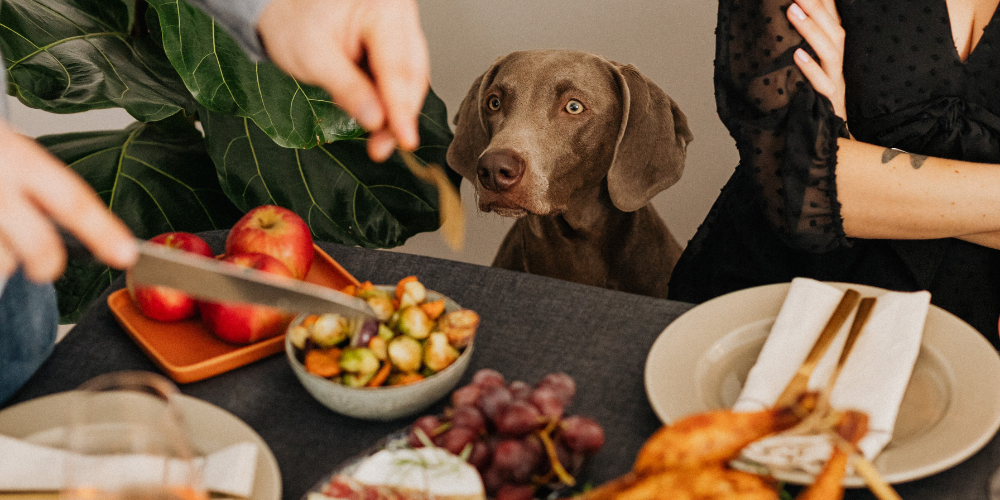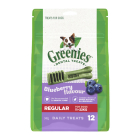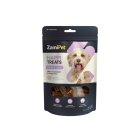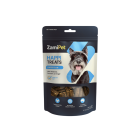
The holiday season is a time of joy and celebration, but for pet owners, it also brings unique challenges. As we indulge in festive activities and foods, it's crucial to remember that what's a treat for us can be dangerous for our pets. Here's a comprehensive guide to help you keep your furry friends safe during these festive times.
Avoid Alcohol for Pets
While it might seem amusing to share a sip of your drink with your pet, it’s a serious health risk. Alcohol, including beer, wine, and spirits, can cause intoxication in pets, leading to serious health issues like vomiting, disorientation, and even seizures. Remember, keeping alcohol out of your pet's reach is not just good practice, it's essential for their safety.
Beware of Bread Dough
Small amounts of bread dough might seem harmless, but they can be dangerous for your dog. The yeast in the dough can cause bloating and produce ethanol, leading to alcohol poisoning. Be especially cautious of dough containing allergenic ingredients like wheat or raisins.
Limit Buttery Foods
Buttery dishes are common during the holidays, but they're not ideal for pets. High in fat and cholesterol, these foods can cause digestive issues and more severe conditions like pancreatitis. It's best to avoid feeding your pet these rich foods.
No Chocolate and Candy
Chocolate is well-known for being toxic to dogs, as it contains theobromine. Even small amounts can cause vomiting, diarrhea, and more severe symptoms. Be equally cautious with candies, especially those containing xylitol, a sweetener highly toxic to pets.
Citrus Fruits: Caution Advised
Citrus fruits are not technically toxic, but in large quantities, they can upset your dog's stomach. Components like psoralen and limonene can also cause irritation. Moderation is key with these fruits.
Coffee and Caffeine are No-Nos
Similar to chocolate, caffeine can be harmful to dogs, causing elevated heart rates and even cardiac arrhythmia. Be cautious about your pet consuming any form of caffeine.
Dairy Products: Not for Dogs
Dairy products, including eggnog, can trigger allergies and digestive problems in dogs. Foods like eggnog can also contain harmful ingredients like raw eggs and nutmeg.
Fatty Foods and Meat Skins
These are a definite no for pets. High in fat, they can cause pancreatitis and other serious health issues. Keep your pet away from turkey skin and other fatty meats.
Grapes and Raisins: Extremely Dangerous
Even small amounts of grapes or raisins can cause kidney failure in dogs. Be very vigilant to keep these out of your pet’s reach.
Ham: High in Sodium
Ham, particularly canned ham, is high in sodium and can cause vomiting, seizures, and even kidney damage. Avoid giving your dog ham.
Mashed Potatoes and Gravy: Proceed with Caution
While plain potatoes are safe, the added ingredients in holiday dishes can be harmful. Also, raw potatoes contain solanine, which is toxic.
Meat Bones: A Risk of Choking
While some bones can be safe, others, like poultry or fish bones, can splinter and cause harm. It's best to avoid giving your dog bones from your holiday meals.
Nuts: Generally Unsafe
Particularly macadamia nuts, these can be toxic and lead to vomiting, fever, and restlessness.
Onions, Garlic, and Chives: Toxic Alliums
These can cause anemia and other serious health issues. Keep your pet away from dishes containing these ingredients.
Pumpkin Pie: Not for Dogs
While pumpkin is generally safe, the added ingredients in pumpkin pie can cause digestive distress.
Salt and Salty Snacks: Cause Gastrointestinal Issues
Excess salt can lead to vomiting, diarrhea, and dehydration. Keep salty snacks away from pets.
Stuffing: A Dangerous Mix
Stuffing often contains ingredients that are harmful to dogs. Avoid letting your pet consume any.
What to Do in Case of Emergency
If your dog ingests something harmful or shows signs of distress, contact your veterinarian or a pet emergency clinic immediately. The ASPCA Pet Poison Control Center is also a valuable resource for advice.
Preventative Measures for Pet Safety
To keep your pets safe, be vigilant in keeping harmful foods out of their reach. However, pets can be sneaky, so it’s wise to offer them pet-friendly treats to distract them from forbidden


